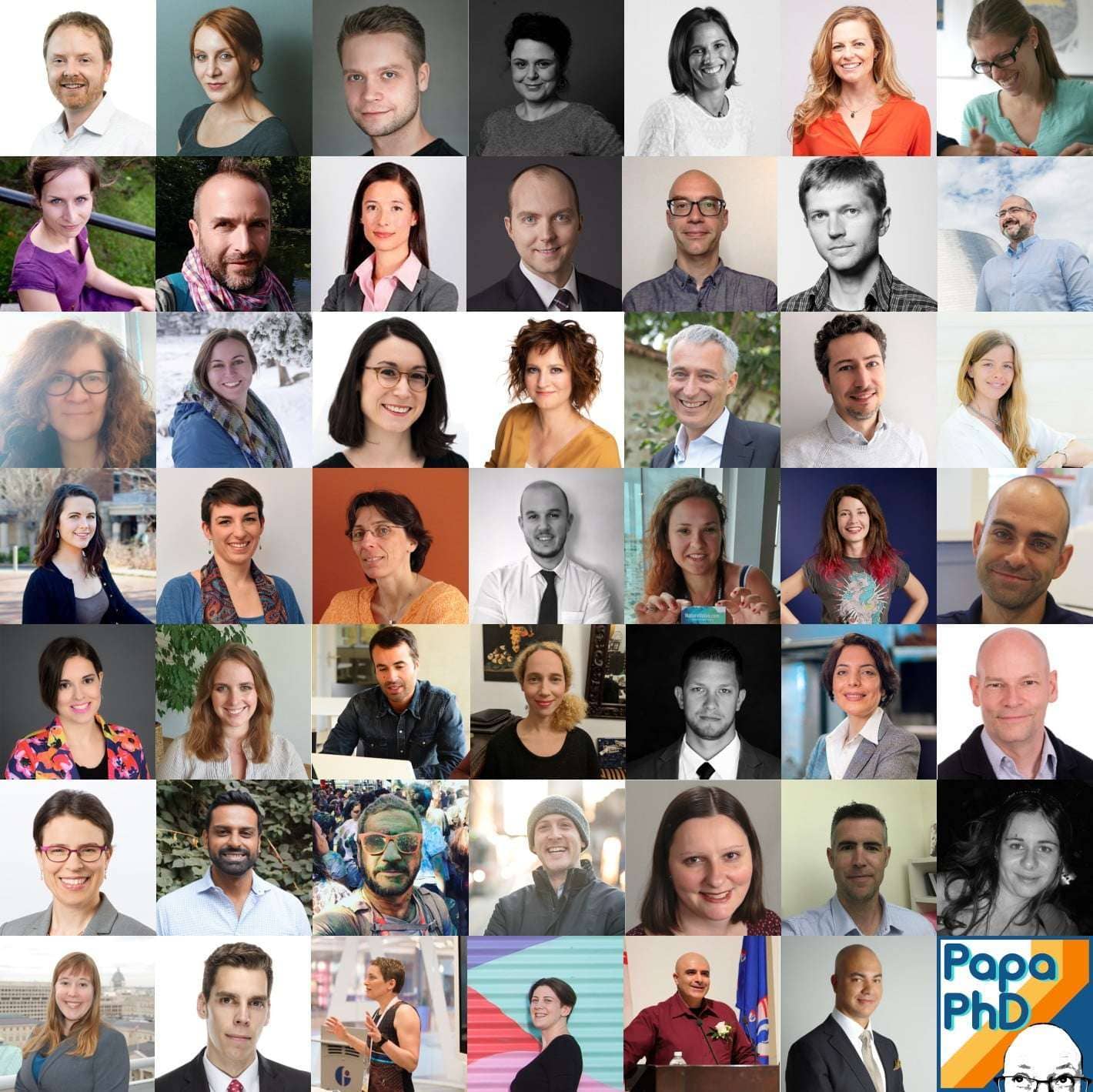Looking Back On A Season of Papa PhD Conversations, Reflections, and Common Themes

b'Download "Tools for Your PhD Journey" Now !
\\n
\\nEpisode transcript:
\\nHi there!
\\n
\\nWe\'re reaching the end of season one of Papa PhD and today, I just wanted to thank all the listeners out there who\'ve been following the show around the world. It\'s been quite humbling to see the show grow as it did in this first year, so again, one of the things that I wanted to do today is to thank you, you who are out there thinking about your PhD, about your master\\u2019s degree and thinking about what your career can look like in the future. I really hope that the conversations that I\'ve been sharing on the show have inspired you in your journey.
\\n
\\nIn this first season I\\u2019ve had the chance of talking with so many interesting guests and learning with them, and hopefully of sharing enough of their wisdom with you to help you in your life and career exploration.
\\n
\\nI feel extremely grateful for having had guests that spanned so many different academic domains: from the life sciences to engineering, to psychology, to literature. The reach of these conversations has by far surpassed what I had imagined was possible when I set out to launch the podcast, so I also want to send out my heartfelt thanks to all the guests who have been on Papa PhD on this first season.
\\n
\\nLooking back on all these conversations and thinking of you, the listener who is thinking about your future , about what path to take, about what decisions to make, I feel that one of the common threads having come out of all these conversations, and that is maybe the most important, was allowing yourself to experiment during your graduate degree. Not only within your research, but importantly outside of it. This can take the form of getting involved in student societies, volunteering in outreach projects, being part of communities around sports or creativity, but also of internships in industry or of taking breaks where you try something completely different before embarking on a new chapter of your academic life.
\\n
\\nAnother common thread that I feel is very important has to do with how you perceive yourself as an academic, as a researcher, as a candidate for a job. Coming out of graduate school you may not be aware of a few important skills you have developed, but that are not technical, that don\'t have to do directly with your subject matter. One of the very important skills that you develop by writing a master\\u2019s or PhD thesis is your capacity to analyze, digest, and make sense of large sets of complex data. Hand in hand with this is your capacity for problem solving. And these are skills that are highly prized by employers.
\\n
\\nAnother area where you organically developed skills during your degree is project management. A lot of positions out there in the job market require the capacity to take on large projects, complex projects, and be able to plan, set milestones, define goals, and then work towards reaching those goals. This is another of the aspects that have again and again being mentioned by guests on the show.
\\n
\\nIf you listen back to the different episodes, to the different interviews, you will find more of these skills, to do with the specific domain each guest works in currently. So, go and explore the Season 1 interviews, listen to the guests who are working in a domain that interests you. You\'ll see, you\'ll find advice you can use to start building a plan for yourself.
\\n
\\nNow, a lot was told during season one about transferable skills, but a lot also was told about the blind spots, the things you don\'t naturally come out of graduate school knowing and being prepared for. One of the main ones has to do with preparing your CV and preparing to interview in a non-academic setting.
\\n
\\nIf you listen back to the interviews were spoke about jobhunting and interviewing outside of academia the main advice that came up again and again was to tailor your CV to each potential emplo...'